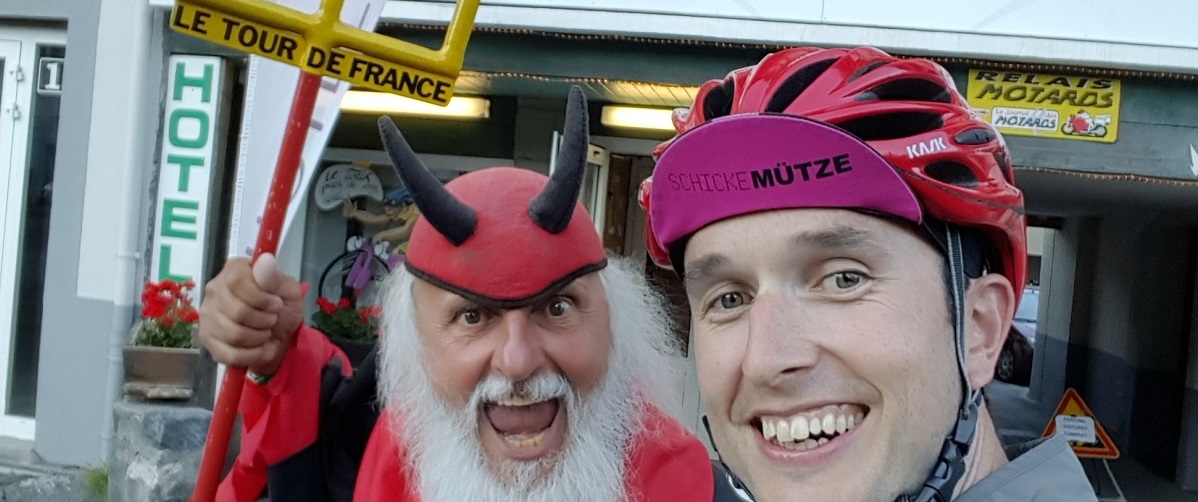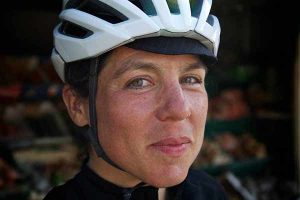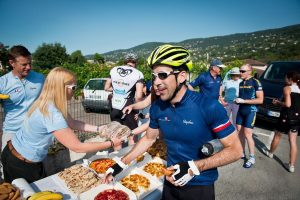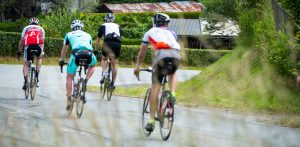So, you’re thinking of riding Le Loop in 2020, are you? Congratulations! This will be one of the best decisions you ever make, and I can’t wait to share the glorious French roads (and patisserie) with you.
You’re also putting yourself in a very strong position by giving yourself almost a year to train and prepare. So much of what you need comes under the rather more vague banner of ‘experience’, rather than just ‘fitness’. In this blog post we’ll address both.
First of all, fitness
No matter how you plan to train for Le Loop, I’d recommend looking carefully at two things:
- The specific demands of the event
- Your own strengths and weaknesses
Figuring out how 1. corresponds to 2. will help you isolate the areas you need to focus on in your training.
We don’t yet know much about the route of the 2020 Tour de France (keep an eye out in mid October when the pro Tour organisers release the full route), but Le Loop riders are typically challenged by:
- Back-to-back days of 200km
- Consecutive mountain stages with more than 4,000m climbing
- The sizzling heat of Southern France
Now, how you respond to the above will vary depending on what sort of riding you’ve done previously. You may be a veteran of several long tours, in which case the back-to-back thing will hold no fear for you. You may have spent a lot of time in the Alps, but never have ridden more than 100km in one go. You might be fine with distance, gradient and heat, but worried about your pace in relation to the rest of the group.
This summer should be both a head start and a dress rehearsal. Almost everyone lets their fitness slip over winter, but you’ll be in a far stronger position to start next year’s training if you’ve laid down a few extra foundations. If you can ride 200km two or three days in a row by the end of this summer, you’ll definitely be able to get back to that by July 2020. The next few months are also a chance to work out what sort of regime works for you, and start tracking how your fitness improves as you train.
Most riders find that setting targets is essential to keep their training on track. If I’m working towards a big multi-day event, I’ll sign up for other long-distance events (of increasing length) every 3-4 weeks, so that I’m always training towards something that’s quite close, rather than something so big and far off that it seems impossible. In between I ride my bike most days, varying between longer, gentler rides and short, hard efforts, to build explosive power alongside endurance, and leave plenty of time for recovery.
The wisdom of experience
As discussed, experience plays a huge part in endurance cycling. One of the main lessons I’ve learned (and continue to learn) is that, when times are tough, I’m capable of pushing on through, and eventually even though I haven’t stopped cycling, I’ll feel strong, calm and energetic again. This strength is cumulative – the more times you’ve carried on through tiredness, discomfort or crises of confidence, the easier it is to remember that whatever you’re currently battling with, it probably isn’t the end of the world, and you’ll get through it just like you did last time. The more rides you do this summer that challenge you, the more prepared you’ll be to rise to the challenges of next year’s Le Loop.
A more nuanced benefit of experience is that it helps you get to know yourself as a rider. There’s only so much advice I can give you about pacing, clothing, eating, drinking and keeping going, because everyone’s mind and body are different.
As you ride this summer, pay attention to how often you need to eat and drink, and how this might change as the weather warms up, and your distance increases. Use this time to find out if there are particular types of food that suit you or disagree with you. Try to gauge how your pace and energy levels vary over the course of a ride, especially in relation to other cyclists. If it turns out (for example) that you’re someone who takes a while to warm up, you’ll know not to get caught up in a fast bunch early on, and that you’ll probably catch up when you get your energy surge later in the day, and others start to flag.
Balance in all things
In my monthly training blogs, you’ll get used to me banging on about the importance of recovery, especially when you’re increasing the distance you ride. This is for two main reasons:
- You don’t build muscle when you’re cycling – you build it when you’re resting afterwards, and your body repairs the muscle fibres you’ve damaged with exercise. You’ll build strength much more effectively if you incorporate rest days into your schedule.
- Over a multi-day ride like Le Loop the opportunity for recovery between cycling sessions is very limited, so it’s good to have a sense of how much you’re asking of your body each day, in relation to how much time you’ll have to rest.
If you’ve signed up for some big rides this summer, make sure you write in a couple of days of complete rest afterwards. You should also plan to taper before each event, by reducing volume and intensity (i.e. ride shorter distances and put in less effort – but still ride) for a week or two beforehand. There’s some detailed information on how to taper here, but the thing to aim for is that you reach the start line well rested, slightly restless, and raring to go.
Spending a day or two off the bike every week gives you a chance to focus on core strength and flexibility, which are often neglected by cyclists, but which can make a big difference to your comfort and efficiency on the bike. Now’s the time to get into good habits. A weekly yoga or Pilates class can make all the difference, and even just spending a few minutes stretching out your quads and hamstrings after a ride can help you feel less stiff and more eager to get on the bike next time.
And perhaps the most difficult balancing act of all – incorporating your cycling into a life that’s already busy with family and work commitments. It’s not always easy to get this right, but it is crucially important that you don’t neglect important relationships in order to train, for your sake as well as theirs. You may end up having to find a few creative compromises (getting up super-early in order to squeeze in a six-hour ride before Sunday lunch; doing your stretching whilst cheering your daughter on in her football match; following a sportive with a family day out when you’d really rather be resting), but the rewards will be worth it, and your loved ones will help you to remember that there are (occasionally) more important things than riding a bike.
See you in 2020!
We’re really looking forward to having you with us on Le Loop 2020, whether you’re riding for a few days, or the full three weeks. If you have any questions about how to plan your training over the next few months (or anything else), please feel free to get in touch at any time.
Emily





